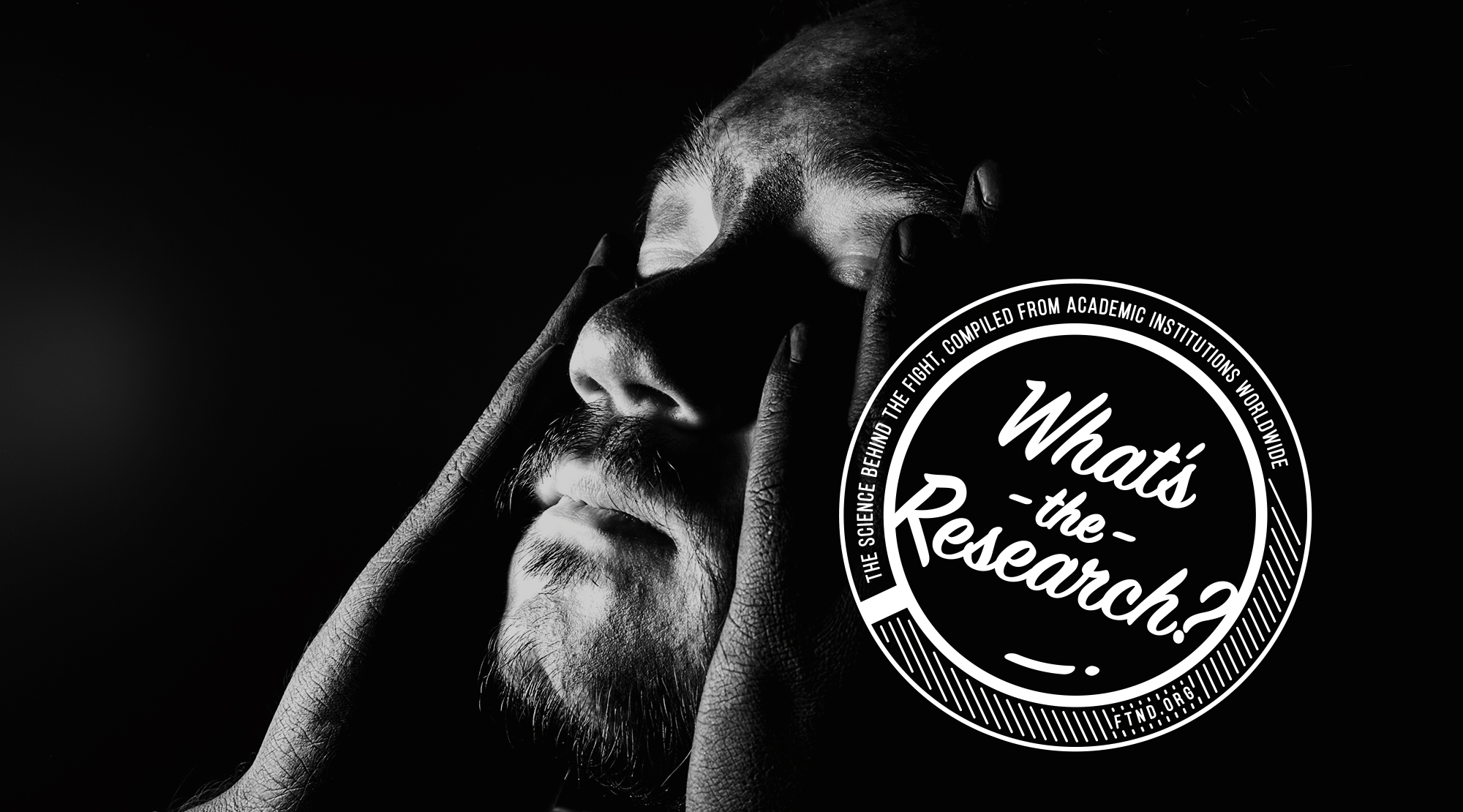Decades of studies from respected academic institutions, have demonstrated significant impacts of porn consumption for individuals, relationships, and society. "What’s the Research" aims to shed light on the expanding field of academic resources that showcase porn’s harms in a variety of ways. Below are selected excerpts from published studies on this issue.
FTND note: This study does not discuss pornography, however, it shows that depression alone does not lead to addiction behaviors nearly as much as when depression leads to shame which leads to addiction-related behaviors. We need to learn how to help people who are struggling without shaming them—which involves seeing their whole worth and distinguishing between healthy guilt (unhealthy behaviors) versus unhealthy shame (“bad” person). We can learn principles from this study that we can apply to situations involving a porn struggle.
The full study can be accessed here.
Shame mediates the relationship between depression and addictive behaviors
Authors: Elena Bileviciusa, Alanna Singlea, Lindsay A. Bristowa, Melody Foota, Michael Ellery, Matthew T. Keough, Edward A. Johnson
Published: July 2018
Peer-Reviewed Journal: Addictive Behaviors 82 (2018) 94–100
Background
Alcohol and gambling problems are common in young adults. Self-medication theory states that young adults with depression drink and/or gamble to escape negative emotions. Research shows that depression is a risk factor for drinking/gambling problems, but more work is needed to examine mediators underlying these associations. One potential mediator is shame. Shame is a self-directed emotion that follows a negative life event and is characterized by intense feelings of inferiority, worthlessness, and embarrassment. Depressed individuals are especially susceptible to shame (and associated emotions). Shame has also been implicated in risk for addiction.
Accordingly, we predicted that elevated shame would explain why depression is associated with both alcohol and gambling problems.
Methods
A longitudinal design was used to examine this hypothesis. Undergraduates (N=210) completed self-reports of depression at baseline (Time 1) and then completed self-reports of shame, alcohol misuse, gambling problems one month later (Time 2).
Results
Results showed that individuals with elevated depression at Time 1 endorsed high levels of shame at Time 2, which in turn predicted more gambling (β=.038, 95% CI [.010, .087]) and alcohol problems (β=.249, 95% CI [.123, .435]) at Time 2. We found that increased levels of shame explained the effects of depression on problem drinking and gambling.
Conclusions
Study findings improve our understanding of the depressive pathway to addiction by providing evidence for shame as a potential mechanism of this pathway.
Impact: Reducing shame can be a target of clinical interventions for young adults with depression and alcohol/ gambling problems.
The full study can be accessed here.
Your Support Matters Now More Than Ever
Most kids today are exposed to porn by the age of 12. By the time they’re teenagers, 75% of boys and 70% of girls have already viewed itRobb, M.B., & Mann, S. (2023). Teens and pornography. San Francisco, CA: Common Sense.Copy —often before they’ve had a single healthy conversation about it.
Even more concerning: over half of boys and nearly 40% of girls believe porn is a realistic depiction of sexMartellozzo, E., Monaghan, A., Adler, J. R., Davidson, J., Leyva, R., & Horvath, M. A. H. (2016). “I wasn’t sure it was normal to watch it”: A quantitative and qualitative examination of the impact of online pornography on the values, attitudes, beliefs and behaviours of children and young people. Middlesex University, NSPCC, & Office of the Children’s Commissioner.Copy . And among teens who have seen porn, more than 79% of teens use it to learn how to have sexRobb, M.B., & Mann, S. (2023). Teens and pornography. San Francisco, CA: Common Sense.Copy . That means millions of young people are getting sex ed from violent, degrading content, which becomes their baseline understanding of intimacy. Out of the most popular porn, 33%-88% of videos contain physical aggression and nonconsensual violence-related themesFritz, N., Malic, V., Paul, B., & Zhou, Y. (2020). A descriptive analysis of the types, targets, and relative frequency of aggression in mainstream pornography. Archives of Sexual Behavior, 49(8), 3041-3053. doi:10.1007/s10508-020-01773-0Copy Bridges et al., 2010, “Aggression and Sexual Behavior in Best-Selling Pornography Videos: A Content Analysis,” Violence Against Women.Copy .
From increasing rates of loneliness, depression, and self-doubt, to distorted views of sex, reduced relationship satisfaction, and riskier sexual behavior among teens, porn is impacting individuals, relationships, and society worldwideFight the New Drug. (2024, May). Get the Facts (Series of web articles). Fight the New Drug.Copy .
This is why Fight the New Drug exists—but we can’t do it without you.
Your donation directly fuels the creation of new educational resources, including our awareness-raising videos, podcasts, research-driven articles, engaging school presentations, and digital tools that reach youth where they are: online and in school. It equips individuals, parents, educators, and youth with trustworthy resources to start the conversation.
Will you join us? We’re grateful for whatever you can give—but a recurring donation makes the biggest difference. Every dollar directly supports our vital work, and every individual we reach decreases sexual exploitation. Let’s fight for real love:

